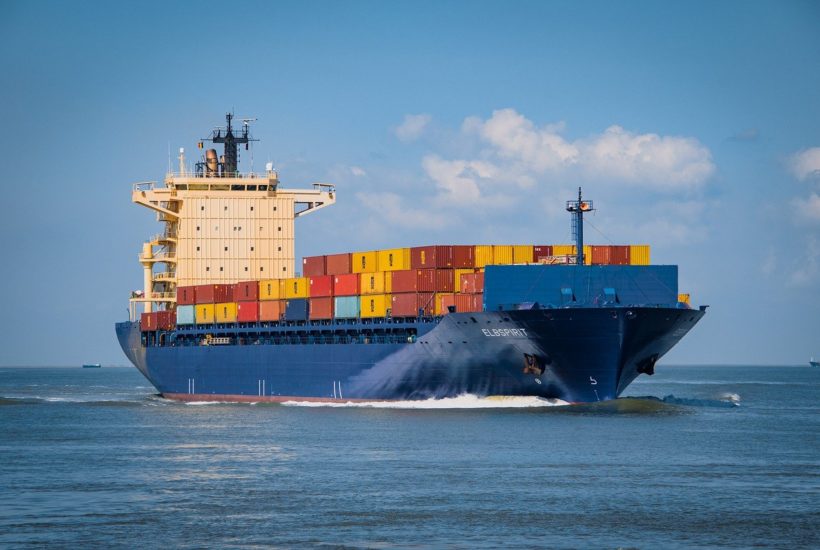Africa
The Emergence of Moroccan Shipping Companies
With the health crisis and the restrictions it imposes, the absence of a Moroccan maritime flag is cruelly felt. In the air, the national carrier has been responsive and has applied the instructions of the state. In the maritime sector, the ministry in charge continues to struggle, as it has very little room to act. However, what levers will have to be used to achieve such an ambition?

Faced with the inflationary effect of containerized maritime transport costs that threaten the national economy and the crisis of return of MREs, Morocco has quickly understood the need to resurrect its maritime flag. However, what levers should be used to achieve such an ambition, in a context where the cost of shipping is out of control? Indeed, following a relatively strong recovery but with limited means of transport, demand has largely exceeded supply, which has resulted in an increase in the price of sea and air transport.
For Mustapha El Khayat, president of the Moroccan Association of Logistics (AMLOG), “this increase is not only the result of an imbalance between supply and demand but the effect of agreements between mega carriers and air alliances. He did not fail to emphasize the danger that the inflationary effect of these containerized shipping costs that threatens the Moroccan economy.
Read more about the Moroccan shipping companies and find the most important economic news with the Born2Invest mobile app.
Converging visions
However, there is indeed a Moroccan shipping company called AML, created in June 2016 with the aim of making it a flagship of national shipping. Contacted by Les Inspirations ECO, M’Fadel EL Halaissi, Deputy Director-General in charge of Engineering, Recovery, Strategic Development and specific missions of Bank of Africa, in charge of the shipping company, deplores the fact that “the operating conditions on the market have not followed the same willingness to work to raise the Moroccan flag to the height of the national ambitions of the company. The leader does not despair, stressing that the group still has the ambition to make it a national company of 1st rank on the chessboard of the Mediterranean basin. How to achieve this? “For the realization of this national project, it is necessary that the vision of AML is convergent with that of the public authorities in charge of this sector,” underlined El Halaissi. Indeed, the unity of strategic vision is still not acquired.
While several foreign shipowners, especially European, have been able to take advantage of the opportunity represented by the operation Marhaba 2021 during the summer, AML has not participated. The leader explained that “the operation Marhaba was the subject of a tender unsatisfactory, as far as AML is concerned, both in form and substance. The leader asserts that maritime passenger transport is first of all a public service! What the Administration has not yet admitted, and this is an error of appreciation. According to him, “the concept of public service requires a specific treatment in the framework of a Public-Private Partnership, as is done with our competitors in the European Union. We are in an unfair competition market. With unequal arms, we can not make AML or any other national company worthy of Morocco emerge.
Total lack of maritime culture
Other analysts also deplore the ignorance of things of the sea and the total absence of maritime culture. With 73 active units in 1989, the number of Moroccan ships has dropped to a total of 15 ships in 2021, all types (passenger and cargo ships). This is the lowest level ever recorded since 1960. Of these 15 vessels, there are only six passenger ships, belonging to the companies FRS (1), Inter Shipping (3), Africa Morocco Link (1) and Detroit World Logistic Maritime (1), with a total capacity of 5,397 passengers and 1,448 cars. All these ships operate on the Strait of Gibraltar, and cover only 10% of the needs. “Morocco has no ship that can serve the lines Morocco-France and Morocco-Italy, which are most needed today, “said Najib Cherfaoui, an expert in maritime transport. On these lines, the traffic depends entirely on foreign shipowners.
__
(Featured image by dendoktoor via Pixabay)
DISCLAIMER: This article was written by a third party contributor and does not reflect the opinion of Born2Invest, its management, staff or its associates. Please review our disclaimer for more information.
This article may include forward-looking statements. These forward-looking statements generally are identified by the words “believe,” “project,” “estimate,” “become,” “plan,” “will,” and similar expressions. These forward-looking statements involve known and unknown risks as well as uncertainties, including those discussed in the following cautionary statements and elsewhere in this article and on this site. Although the Company may believe that its expectations are based on reasonable assumptions, the actual results that the Company may achieve may differ materially from any forward-looking statements, which reflect the opinions of the management of the Company only as of the date hereof. Additionally, please make sure to read these important disclosures.
First published in LesEco.ma, a third-party contributor translated and adapted the article from the original. In case of discrepancy, the original will prevail.
Although we made reasonable efforts to provide accurate translations, some parts may be incorrect. Born2Invest assumes no responsibility for errors, omissions or ambiguities in the translations provided on this website. Any person or entity relying on translated content does so at their own risk. Born2Invest is not responsible for losses caused by such reliance on the accuracy or reliability of translated information. If you wish to report an error or inaccuracy in the translation, we encourage you to contact us.

-

 Biotech2 weeks ago
Biotech2 weeks agoWhy Bioceres Shares Slide Into Penny Stock Territory
-

 Crowdfunding3 days ago
Crowdfunding3 days agoReal Estate Crowdfunding in Mexico: High Returns, Heavy Regulation, and Tax Inequality
-

 Africa1 week ago
Africa1 week agoAgadir Allocates Budget Surplus to Urban Development and Municipal Projects
-

 Cannabis3 hours ago
Cannabis3 hours agoSouth Africa Proposes Liberal Cannabis Regulations with Expungement for Past Convictions












